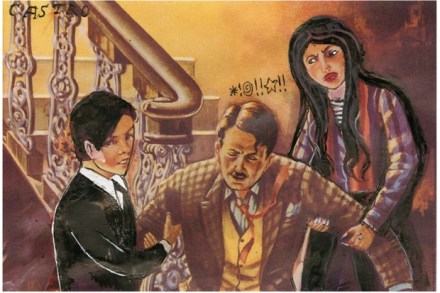The one thing that really gets better with age
On the London Underground last week the carriage was crowded. No seat. No problem. I’m only 67 and content to stand. But a younger man offered his seat, and, having some way to travel and a book to read, I accepted with the appropriate grunt and nod of gratitude. Later, approaching my station, I noticed he was still there. Should I thank him properly before alighting? But he was in another part of the carriage. It might look silly to elbow my way over. Let it pass. Then a voice in my head spoke, a voice that over the decades has become so familiar. Don’t misunderstand me: this was not
















